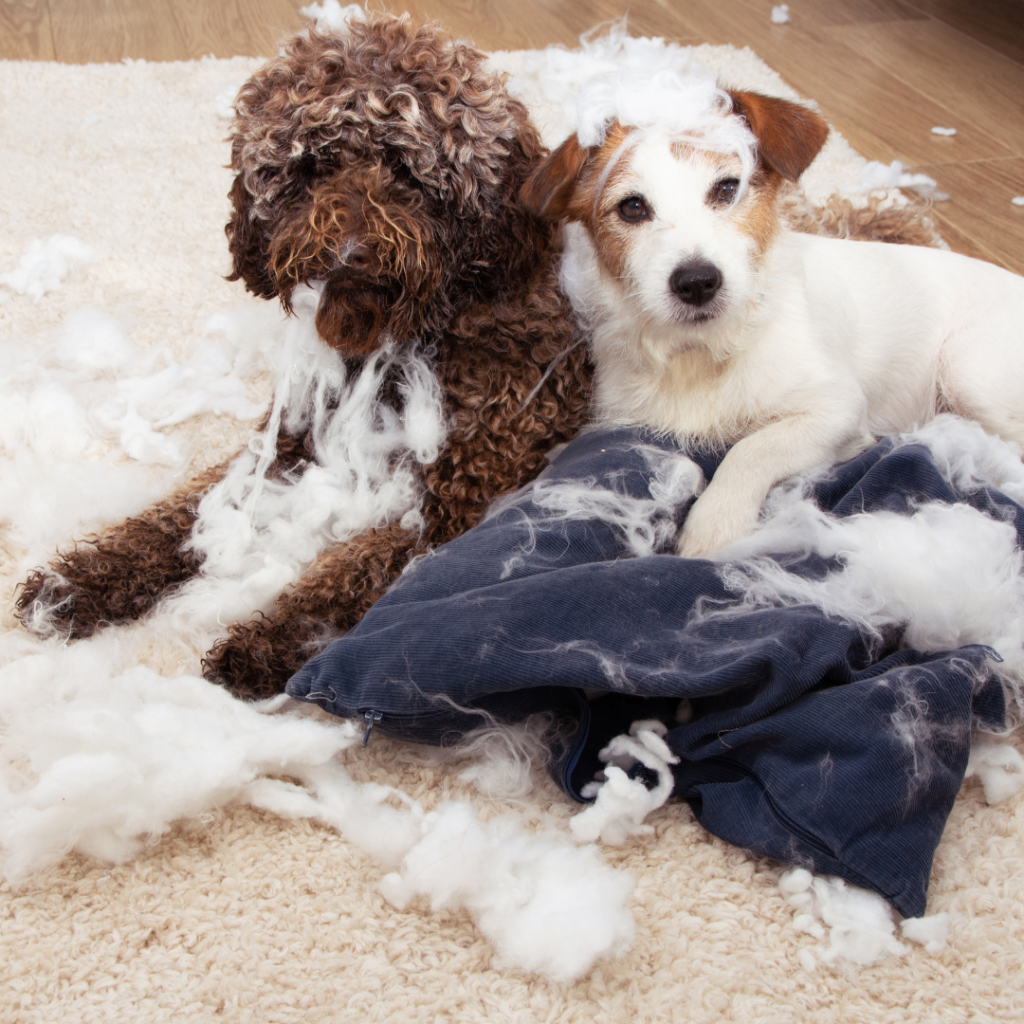Dogs are famous for their loyalty, and it’s not surprising that they have a loyal fan base. But dogs aren’t the only animals with a loyal following. Many pet owners and dog lovers recognize separation anxiety as the destructive behavior dogs exhibit when their owners are out of sight. To find out if your pooch has separation anxiety, you need only observe their behavior.
When our dogs are young, separation anxiety is rarely a concern. But as dogs grow older, separation anxiety can rear its ugly head. While there are some types of separation anxiety that dogs can grow out of on their own, others, like separation anxiety caused by loss, can persist throughout their lives.
What is Dog Separation Anxiety?
Separation anxiety in dogs is a common problem. Dogs like to be with us, and they may suffer greatly when we’re not around. Unfortunately, owners don’t always understand that dogs can develop separation anxiety. And when it does, it can make for a stressful situation for everyone involved, including your pet.
What Are the Signs of Separation Anxiety in Dogs?
Dogs and separation anxiety go hand in hand. Most dogs will exhibit separation anxiety during the puppy stage and actively resist the idea of being left alone, which can make large life changes difficult. Separation anxiety in dogs causes them to bark, drool, whine, howl, chew, dig, and generally become very disruptive. Pet parents would need to learn effective ways to combat this condition. For instance, they would need to make their furry friends exercise at regular intervals. Crate training, desensitizing, and providing them with health supplements like CBD products (which can be sourced from wccannabis) could also prove to be helpful in this regard.
How to Treat Separation Anxiety in Dogs?
- Crate Training
Instead of leaving your pet on his own, try crate training. With crate training, your dog will learn to feel comfortable in his crate, and he’ll associate it with the comfort and safety of his home. Crate training will also help with house training since your dog will associate his crate with being in his own home.
- Desensitization and Counter-Conditioning
Separation anxiety in dogs can cause a lot of stress for both dog and owner. Luckily, some treatments help your pooch learn to relax on its own. Desensitization and counter-conditioning are two of the best methods to help your dog deal with anxiety. When trying these methods, you may need to expose your dog to some kind of stress stimulus in order to examine its reaction. Then, you can go on to repeat this process till your pet becomes unreactive to it. This technique is generally doable. However, if you still find it difficult, then you may want to consult an expert Dog Trainer In Brighton or a specialist near your home. Using calming methods and exercises, your dog can be trained to remain calm and playful when left alone.
- Exercise
Exercise is a great treatment option for separation anxiety, but it can be difficult to fit exercise into a busy lifestyle. This article provides useful tips on how to set up an exercise schedule for separation anxiety in dogs and tips to incorporate your canine pal’s favorite activities into your schedule.
- Clinginess – Playing it Cool
Clinginess can be a sign of boredom, so while you play, make sure he’s getting some good exercise, too. Clinginess can also be a sign of anxiety, so if you find yourself leaving the house only to return a few minutes later, make a game of it. Make the return trip a game as well by leaving a favorite treat for your dog to find. Also, don’t forget to reward your puppy when he does well at staying home alone.
- Medication and Natural Supplements
Dogs with separation anxiety are a common problem among dog owners, and it can become quite stressful. The good news is that there are many effective treatment options available. But which solution is best for your dog? The answer to this question can only be sought at the clinic of a good vet. He can run a few tests on your furry friend and best determine what can suit him. Accordingly, he can recommend some medication or CBD for dogs such as those available at mellow road cbd and similar e-stores.
What Causes Separation Anxiety in Puppies and Dogs?
Whether you’re a first-time puppy owner or you’ve been through separation anxiety training before, it’s a common problem that can arise in dogs or puppies. Symptoms include excessive barking, howling, crying, and destructive behavior. The fear of being alone causes separation anxiety. This fear can start when puppies and dogs are still young, or it can happen later in life.
Puppies and dogs don’t suffer from separation anxiety because their owners have failed to love them enough. Sadly, some people assume that puppy separation anxiety is normal and that owners cannot train their dogs to be comfortable being alone. This is simply not true! Puppy separation anxiety can develop anytime within the first few months of owning your pup. It is perfectly normal for puppies and dogs to experience separation anxiety when left alone. Dogs who experience separation anxiety are afraid they are in trouble and that something bad will happen to them.

